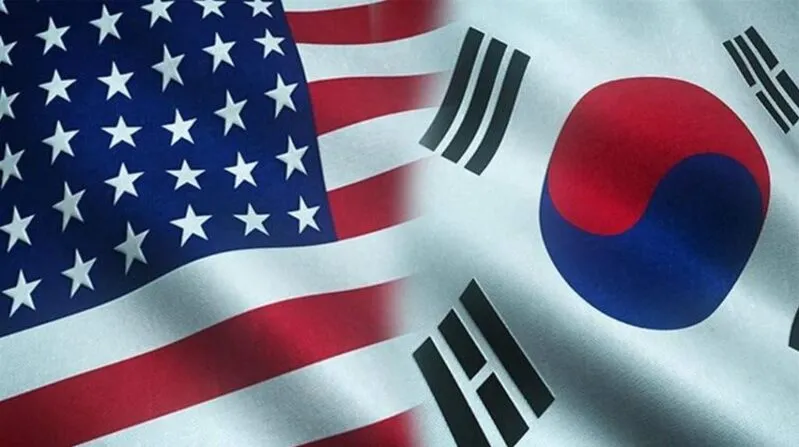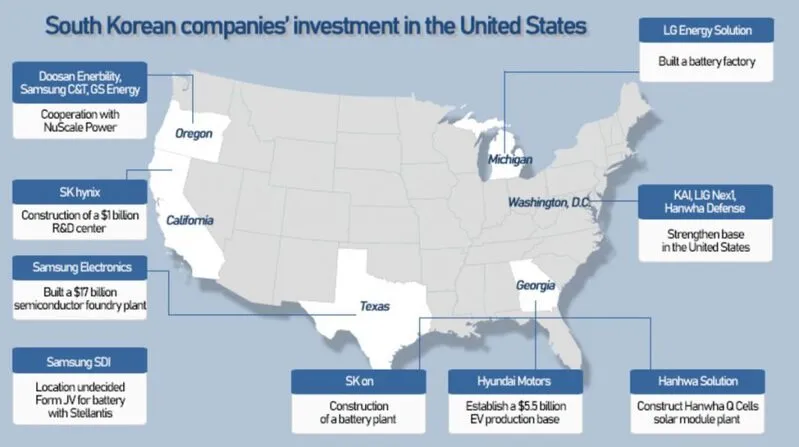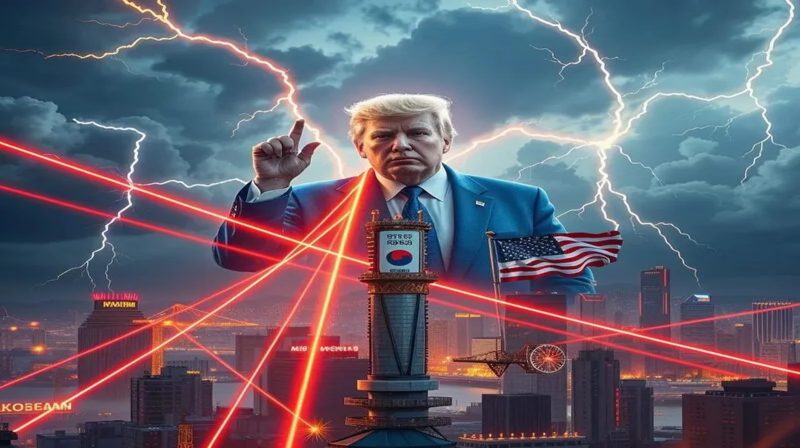Trump’s EV tariffs on Korea could dramatically reshape the electric vehicle market, and the president is proposing a steep 35% import tax on Korean-made EVs, semiconductors, and also batteries. This announcement has triggered immediate concerns about US Korea trade tensions, particularly as Korean automakers such as Hyundai and Kia have already invested billions in American manufacturing facilities. The proposed electric vehicle tariffs Korea is facing would significantly impact pricing and availability of popular EV models that are currently in the US market.

Also Read: Trump Tariffs Were Supposed to Strengthen the USD: Why Is it Falling?
Trump’s EV Tariffs on Korea Spark Trade Tensions, Chip Export and Battery Import Concerns

Industry Response to Trump’s EV Tariffs on Korea
The Korea Automobile Manufacturers Association stated:
“Korean automakers have been committed partners in America’s automotive ecosystem, investing $21.6 billion in US manufacturing facilities”
These chip export restrictions and battery import tariffs are threatening established supply chains right now. Trump’s EV tariffs on Korea proposes would add an estimated $3,000 to $5,000 to EV prices, and this could potentially slow adoption rates at a critical time. Korean battery manufacturers are currently supplying major US automakers including Ford and also GM through joint ventures that are worth billions of dollars.

Economic Impact of Electric Vehicle Tariffs Korea

The US Korea trade tensions have prompted diplomatic responses from both nations at this time. Financial markets showed immediate volatility following Trump’s announcement, and Korean automotive stocks were fluctuating significantly. The proposed chip export restrictions could actually backfire, as Korea produces approximately 27% of global memory chips that are essential for American tech companies right now.
A Korea Semiconductor Industry Association spokesperson stated:
“The proposed tariffs would not only impact Korean exporters but also American companies that depend on our advanced semiconductor technology”
Import duties on battery are a near term factor that threatens EV affordability. The proposals by Trump to have EV tariffs on Korea targets would adversely affect the supply chains as they have built their supply chains, and this is eventually costing American consumers. The electric vehicle tariffs Korea is confronting could accelerate Korean companies establishing more US manufacturing capacity, though such transitions require years and also substantial investments.
Also Read: Appeals Court Keeps Trump Tariffs, President Urges Supreme Court Action






